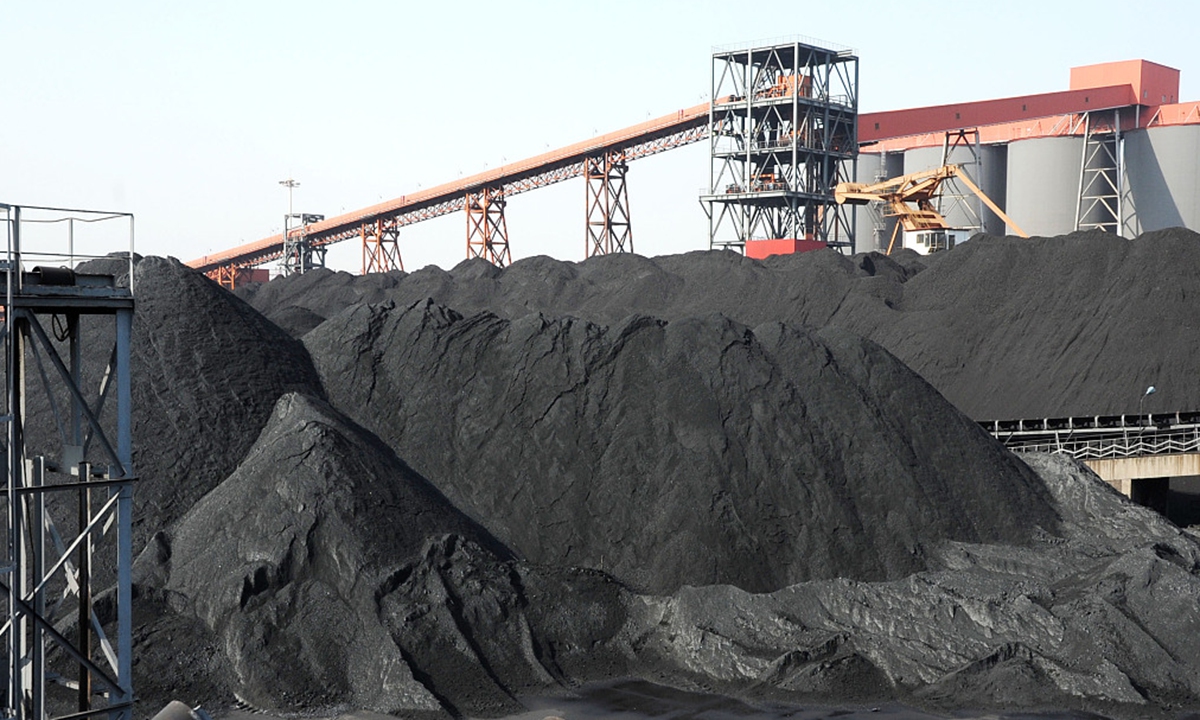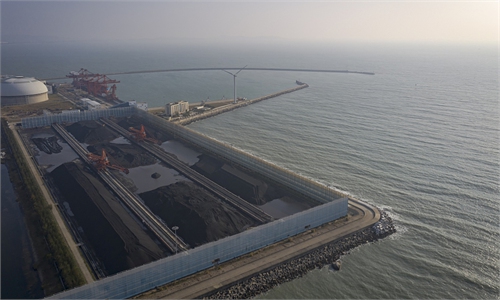Coal imports from Australia not an ideal option for China due to rising costs: observers

Photo:VCG
Australian coal is not an ideal option for China to import, market watchers and business insiders said on Friday, at a time when China is ramping up coal imports from countries such as Russia and Indonesia.
One factor is that Australian coal exporters are put off by the transport fees, the observers added.
China has been suffering energy pressure recently, with several cities reportedly limiting power supplies for industrial production. Some cities are also encouraging more coal imports from Russia, Indonesia and Kazakhstan to fill the market gap, following China's suspension of coal imports from Australia.
Port of Suifenhe in Northeast China's Heilongjiang Province is boosting coal imports from Russia, and the daily amount is already over 5,000 tons, according to Science and Technology Daily on Friday.
Data from coal information provider cctd.com.cn showed that in the first eight months of this year, Indonesia was the largest source of coal imports for China, followed by Russia.
China does not have to import Australian coal, Huang Teng, a market insider, told the Global Times on Friday.
From January to August this year, China imported 198 million tons of coal, a decrease of 11 percent over the same period last year, according to Chinese customs data.
During that period, Indonesia was the largest source of coal imports with a year-on-year increase of 19 percent, and China's coal imports from the US soared seven times year-on-year.
In addition, coal imports from Canada, Russia and the Philippines were up 67 percent, 62 percent and 49 percent, respectively, year-on-year.
Although several market watchers said it will be a trend for China to allow imports of coal from more countries given the current shortage, it will not greatly ease the current supply situation to import coal from Australia.
Australia's coal production capacity is limited and transport fees have risen, which would make it hard for Australian coal to compete on price with coal from other countries, industry insiders said.
In the past, China imported more than 70 million tons of coal from Australia each year, a relatively small portion of China's annual coal consumption of 4 billion tons a year. Australian coal accounts for a negligible proportion of coal and its absence will not have a significant impact on China's coal supply, Lin Boqiang, director of the China Center for Energy Economics Research at Xiamen University, told the Global Times.
Hong Lang with the Datong Coal Mine Group, a major coal producer in North China's Shanxi Province, told the Global Times on Friday that it will be hard for domestic coal production to catch up quickly.
When asked about a possible increase in imports of coal, Hong said "we will try to resolve the problem by ourselves."
The Chinese government is taking measures to counter the shortage, as market watchers predicted that coal supplies will be tight until May next year, taking into account the impact of the recent heavy rains in Shanxi and the strong global demand for coal.
Erdos in North China's Inner Mongolia Autonomous Region has rich resources and the city's average daily output exceeded 2.1 million tons of coal, the highest level since the beginning of this year, according to the Xinhua News Agency on Friday.
The region has reportedly allowed 72 coal mines to increase annual production by nearly 100 million tons of coal.


